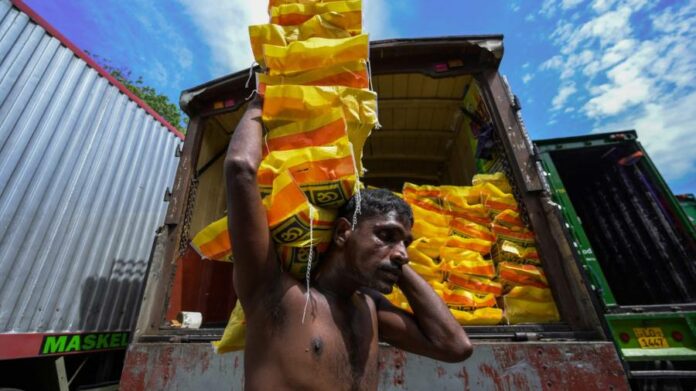The IMF’s board has finally backed a $3bn bailout for Sri Lanka to help the country restructure its debts and relieve a “catastrophic” economic and social crisis.
The deal on the bailout, which was first agreed in principle last September, was reached after resistance from China, the country’s biggest bilateral lender, was overcome earlier this month.
The country was thrown into turmoil last year after Russia’s war in Ukraine led to soaring inflation and shortages, exacerbating years of mismanagement and policy errors.
The IMF said on Monday that Sri Lanka had been hit hard by “a catastrophic economic and humanitarian crisis” and that it faced significant challenges “stemming from pre-existing vulnerabilities and mis-steps”.
Sri Lanka appealed for IMF support after its former president fled the country and resigned last July following months of mass street protests.
The deal is designed to help restructure $95bn-worth of public debt — a figure that amounts to around 130 per cent of GDP — owed mostly to foreign governments and commercial lenders, including international and domestic bondholders.
In return for the bailout, Sri Lankan authorities have agreed to far-reaching fiscal, monetary and governance reforms to fight corruption and raise tax revenues.
Kristalina Georgieva, IMF managing director, said overcoming the crisis would require “swift and timely implementation” of the IMF programme including “strong ownership” of reforms agreed between IMF staff and Sri Lankan authorities.
Sri Lanka will get one immediate and eight subsequent disbursements, each of about $333mn, over the course of the four-year IMF programme.
Payouts will depend on Sri Lanka meeting the programme’s conditions, starting with an agreement with its creditors on how to restructure its public debts.
The IMF would normally expect this to be largely complete before its first six-month review. But given the complexity of Sri Lanka’s debts, analysts say, reaching agreement with all creditors could take 18 months.
A preliminary deal with bilateral lenders is thought to be enough to trigger the release of the second tranche, however.
Reforms include measures to tackle corruption and inefficiency at state-owned enterprises; fight inflation and rebuild foreign currency reserves; recapitalise the banking sector; and overhaul the tax system, under which half of all the country’s taxpayers pay less than 5 per cent of their income to the state.
China agreed two weeks ago to join other bilateral creditors, including India and Japan, in supporting the deal.






